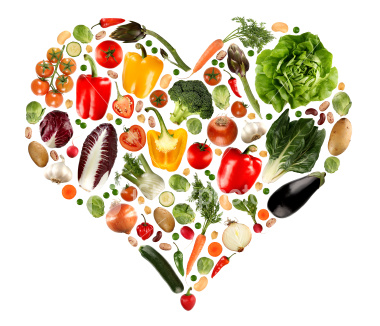Your Monthly Check-Up: Defending Your Eating Habits

It’s no secret that obesity, high blood pressure and diabetes are huge problems in this country, among many other ailments. The good news is that most of these illnesses can be managed through diet and exercise. It seems a new diet comes out every day, but the best defense is a good offense. Eating well and getting enough exercise and rest are surefire combatants to many of the health problems Americans are suffering from.
“Eating clean,” “organic” and “grass-fed” are just a few of the current buzzwords in the world of healthy eating, and many people are starting to get on this “down with junk food” bandwagon. But it’s not easy, especially when it comes to eating with family, friends and in the workplace, when the lure of pastries, fast food lunch breaks and happy hour appetizers loom large.
An article in the September issue of “Experience L!fe” magazine, titled “Food Fight” by contributing writer Jon Spayde, tackles this very subject. In his article, Spayde consults with food blogger Darya Pino Rose, PhD, about the barriers to overcome when deciding to switch to a healthier eating lifestyle as well as some of the strategies for success.
Spayde and Rose outline six main barriers people may face when embarking on a new eating routine:
- Your own rigidity: going fast and hard instead of easing into it or being more reasonable
- The urge to convert: offering unsolicited advice and thus turning people off
- Feelings of ambivalence: worrying if you can even stick with your new goals
- Fear of not fitting in: maintaining your resolve at dinner parties and out with friends
- Difference of opinion about what’s really healthy: others may be concerned that you’re not getting the proper nutrition
- Reluctance to get support: feeling unsure about revealing your decision to others
These six barriers present challenges, especially when making the decision alone and not as part of a family or workplace eating overhaul. “It’s natural, especially in the early stages of a new eating pattern, to try to obey every food rule to the letter and do everything perfectly – which can lead to a sour, anxious attitude on your part and trigger defensiveness in others,” the article states. Also, in your newfound excitement about eating healthy, you may inadvertently (or perhaps on purpose) offer advice to your family, friends and colleagues that is unsolicited, which can be off-putting, alienating and make you come across as holier-than-thou, the article states.
You also may suffer feelings of insecurity when out to dinner with others and not being able to indulge in the less-healthy options you used to. Your friends and colleagues may question your recent choices, for example, “You say you’re a vegetarian? Where are you going to get your protein?” or “You’ve given up dairy? Won’t you miss the probiotics in yogurt?” the article states. These situations may become overwhelming and tempt you to return to your old habits to avoid such confrontations.
But Spayde and Rose have put together an arsenal of strategies to help you meander this new eating world and equip you with the tools you need to answer questions, make healthy decisions and stick with your eating plan. First of all, realize it’s not about you. “People who approach you antagonistically about food are probably insecure about their own eating habits,” says Rose in the article. Also, framing your responses to these types of questions will help curb some of that insecurity. Rose says, “If you frame the explanation of your eating habits in terms of ‘I don’t eat that awful stuff,’ you’ll antagonize. But if you frame it as ‘I’m eating differently as a kind of experiment to see how I feel,’ you take the value judgment out of it.”
Another way to avoid insecurity or awkwardness regarding your new eating routine, according to the article, is to tell people ahead of time, for example, the hosts of upcoming dinner parties or other such events. People appreciate this and will be more understanding than if you show up with your own food unexpectedly. Spayde and Rose also state that emphasizing real pleasure is a great way to offset some of these questioning looks and comments, too. According to Rose, “You can say, ‘Hey, pizza is great, but so is this salad, believe it or not. I love how it makes me feel. I’m not trying to restrict myself or show off my willpower – I am really into this.’ Emphasizing happiness can really disarm a critic.”
Also, Spayde and Rose suggest choosing your battles. “If it’s my grandmother’s birthday and someone whips up her favorite apple pie and everyone is having a piece (and it’s not a proven allergen or won’t trigger a negative physical reaction), that might be a time for me to have a piece,” says Rose in the article. “There’s definitely something to be said for being somewhat flexible at those times when nutrition isn’t the main value - when it’s a matter of love or tradition.”
The bottom line is, the benefits of switching to or sticking with a healthier way of eating far outweigh any negative opinions or awkward situations that doing so might initially cause. As eating healthier becomes the norm – and hopefully it will – there will be less need to employ strategies for success, so you can spend more time planning your meals and shopping for healthy food and less time planning your counterattack when the questions start flying. Be firm with your decisions. Who knows? You may just change a few friends’ or colleagues’ minds in the process!
